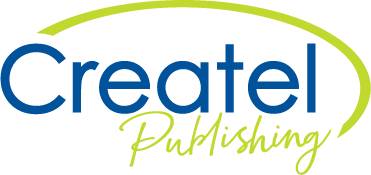Building Academic Honour and AI Plagiarism
No person was ever honored for what he received. Honor has been the reward for what he gave.
― Calvin Coolidge
We’re living in the age of a new revolution: the Artificial Intelligence (AI) revolution.
Similar to the industrial revolution, AI is changing the world as we know it today. Recently, the CEO of the widely successful language app Duolingo released a statement informing the world their business would no longer be using contractors to do any work that could be completed with AI. Along with this, there have been reports of multiple companies replacing their employees with AI. With businesses emphasising the value of the quantity and speed of work over the quality and effort behind it, how does this impact our students?
There is honour in the process and effort of our work. Despite this, there has been an increasing in the number of cases of plagiarism in schools. A recent report has estimated around 10-60% of students use generative AI such as Chat GTP in their academic work. A Hungarian study found at least 16% of secondary students use AI to complete their homework. Furthermore, an article from The Guardian stated that even at a university level, students were being awarded their degree without the ability to read, write or understand basic English.
We have a problem. Of course, the problem is not AI; it is just a tool after all. Rather, the problem lies in a growing number of students who are no longer willing or able to think and learn critically and deeply. Students who avoid challenges, and therefore, meaningful achievement.
So, what can we do?
Facilitate Discussions on Ethical and Academic Principles
Research suggests there is a need for comprehensive discussions with students on the uses, threats and limitations of AI. We should aim to highlight the ethical and academic principles, emphasising the importance of human intelligence and critical thinking. These discussions could help students understand the bigger picture of AI in promoting more equitable outcomes, authentic learning, meaningful achievement and avoiding plagiarism.
Emphasise the process
Although schools have done this for a long time, we must continue to encourage students to show their working out and their process. This might involve asking them to justify and explain how they arrived at an answer or awarding marks for the process itself. If students are permitted to use AI tools, ask them to document the process: what questions they asked, the answers they received, and how they used that information. (It is important to note that unfortunately, Chat GTP can generate the process for maths equations.)
Consider Assessment Styles
While summative assessments remain important, incorporating more assessment for learning and assessment as learning can help build a stronger foundation of understanding. Ongoing formative assessments during the learning process allow teachers to better gauge students’ skills and knowledge, offering more opportunities for meaningful feedback and growth.
Help Students Find Confidence in Their Work, Their Abilities and Their Potential
One of the main reasons students rely on AI is a lack of confidence in their own abilities. Support students by offering constructive, targeted feedback that focuses on their effort, process, and progress. Celebrate their achievements and show them how they can improve and excel through their own thinking.
As educators, we are not just preparing students to use tools like AI; we are preparing them to thrive in a world shaped by it. By fostering ethical awareness, valuing the learning process, rethinking assessment, and building students’ confidence, we can equip them with the critical thinking and integrity needed to succeed. The goal is not to reject AI, but to guide our students in using it wisely, responsibly, and with purpose and with honour.
This article is part of the Building Character and Resilience Program. To request more information fill out our form!



Leave a Reply